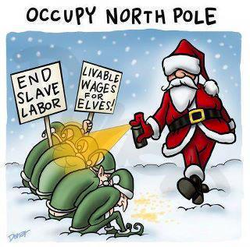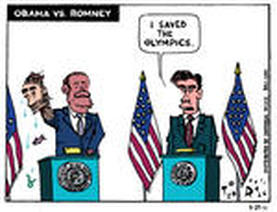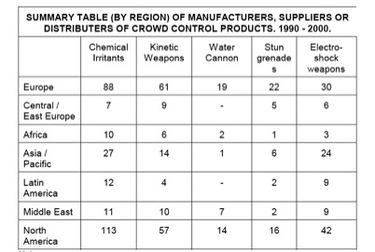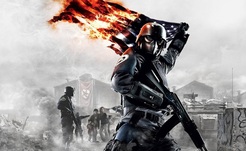
First, most of the companies that create such technology as pepper sprays, light grenades, rubber bullets and the like are in the US, Israel and UK (Omega Foundation) - the most advanced democracies are the ones that helped create and now sustain the industry. Why? Democratic political leaders do not want to have their victims of state repression with obvious injuries and most individuals are interested in political order but not in excessive violence being used while it is being sought. The solution? Democratic governments needed to repress in a way that did less obvious physical damage to the targets. Next thing you know, we have products that do just that. What stands out about the current context is that the nature of the "threat" was somewhat unclear (the students were just sitting there at Davis) and the police officer seemed so casual about pepper spraying (look at his gait; it appears as if he is just going for a nice stroll or walking his dog). The latter is by far the most troubling because the officer might as well be some robot moving from left to right, emitting something into the students as if to disinfect the dirty children. Perhaps this is the next step: drone protest police or Robo-Riot Cop. The youth occupied space but one has to wonder, is spraying some orange-like substance that stings the eyes as well as throat and dragging some of the countries future along the ground the best that American security forces could come up with? Is this the best that the US government could come up with?
Second, the US government, through police departments, have consistently responded to challenging protest activity with aggressive protest policing whenever they felt threatened. In some earlier research with Sarah Soule, I showed that this response has persisted across time: when threatened, the police act aggressively. This is what they do. Additionally, in some other work, we showed that it also matters exactly who protests: at a certain point (when blacks were protesting), they were even more likely to be treated aggressively. This is what they did. There is nothing new here but the quality of the video footage, the images virality and the fact that this took place in the last week. Recall the now ancient footage of African Americans being hosed, beaten and bitten by dogs. Same as it ever was. At least back then the police put a little umpf into their repressive action. You could see them sweating, putting in some effort into the swing of the baton and you knew that there was a conflict. With the robotic like gestures of the Davis incident it will be interesting what people think of this event in 20-30 years.
The call for reflection and action is clear: we need to better understand what is threatening and to whom. We also need to figure out exactly who is accountable for what. If the same degree of attention to political accountability that was used at Penn State could be focused on situations like this, then someone might actually be held responsible.



 RSS Feed
RSS Feed
